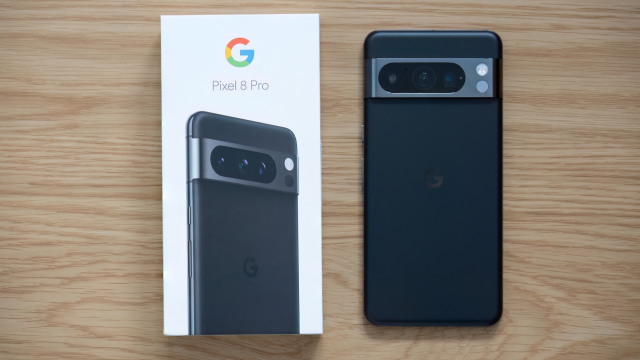On paper, the Pixel 8 might seem like a sure hit for Google. It sports the same chip as the more expensive Pixel 8 Pro, but is cheaper and has a screen size that’s more manageable for some. Unfortunately, in a strange twist that makes absolutely no sense, though, Google says it won’t utilize its latest AI models on the cheaper Pixel 8.
The move caught a lot of people off guard and was only made public after Terence Zhang, a member of the Geminin-on-Android team, said that “Nano will not be coming to the Pixel 8” during a Q&A session at Mobile World Congress 2024. The news was spotted by Mishaal Rahman and shared on X (formerly Twitter).
There are, obviously, quite a few red flags here. For starters, Google has been pushing Gemini harder than I’ve ever seen it push anything else it has produced. While the opinions on the Google-powered AI model vary, there’s no arguing that Gemini can be promising at times. One of the most promising factors, though, was that Google was bringing a version of its fancy AI model to its Pixel 8 lineup.
But now, it seems the flames of excitement around all that might have been fanned a bit too much by the tech giant, as it is now citing “hardware limitations” that will keep it from bringing Nano, the mobile-focused version of Gemini, to the Pixel 8. It’s an excuse that makes absolutely no sense, especially since the Pixel 8 and Pixel 8 Pro are running the exact same chipset.
In fact, the only difference between the Pixel 8 Pro and Pixel 8 as far as hardware goes is the display size, which shouldn’t affect AI, the cameras, which, again, shouldn’t affect AI, and the RAM allotment. The Pixel 8 comes with 8GB, while the Pixel 8 Pro has 12GB. Sure, that might hurt the processing time of the AI a little, but losing 4GB of RAM shouldn’t cut the phone off entirely from the AI model. In fact, the base version of the Galaxy S24 lineup also has 8GB of RAM and runs Gemini Nano features just fine.
If there’s any other kind of hardware difference, Google has never made it known, and it’s odd given how much Google has advertised its Pixel 8 devices as being built for AI.
Sure, there are arguments to be made about how Google might have outlined things during its initial Pixel 8 and Pixel 8 Pro announcements. However, the company never clearly stated anywhere that the two devices would offer different AI capabilities. That’s something that probably would have been nice for Pixel 8 buyers to know back in October when the phone hit store shelves.
As it stands, it feels like Google could be creating some kind of false limitations to try to make its more “professional” level phone stand out a bit more, but that’s purely speculation on my part. Whatever the reason, it’s not a good look for the Pixel 8, especially if Google keeps pushing its AI products and one of its flagship devices isn’t able to even take advantage of those features.
My big question now, though, is where this leaves the Pixel 8. Google promised seven years of support for the smartphone, but if it’s already pairing down new AI features after less than six months, that seven years of support isn’t looking as promising. Hopefully, this will be something the tech giant rectifies going forward. For now, though, Pixel 8 owners can probably expect to get snubbed when it comes to some new AI features.

Leave a Reply
You must be logged in to post a comment.